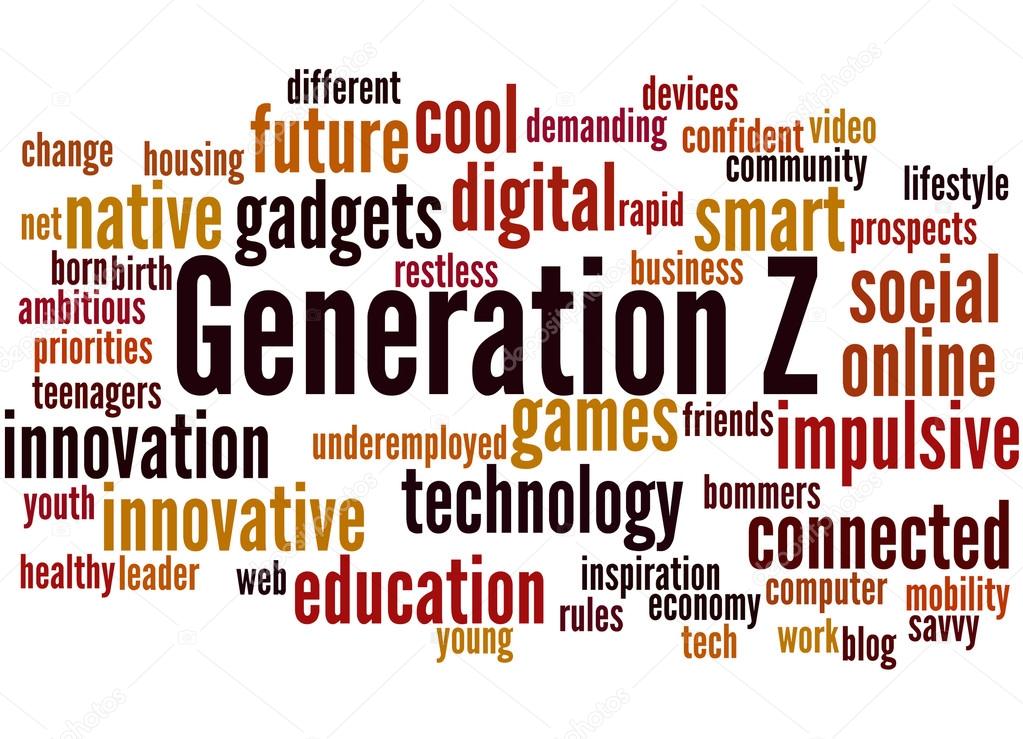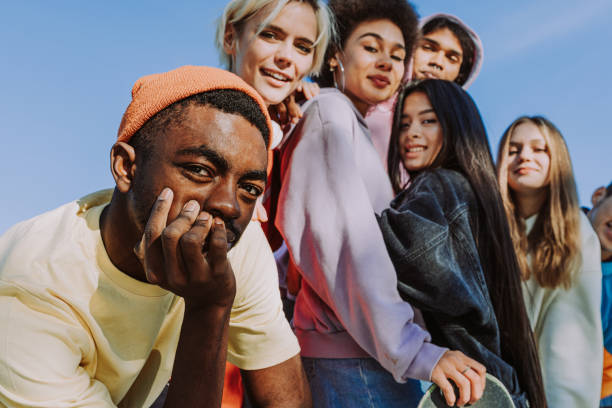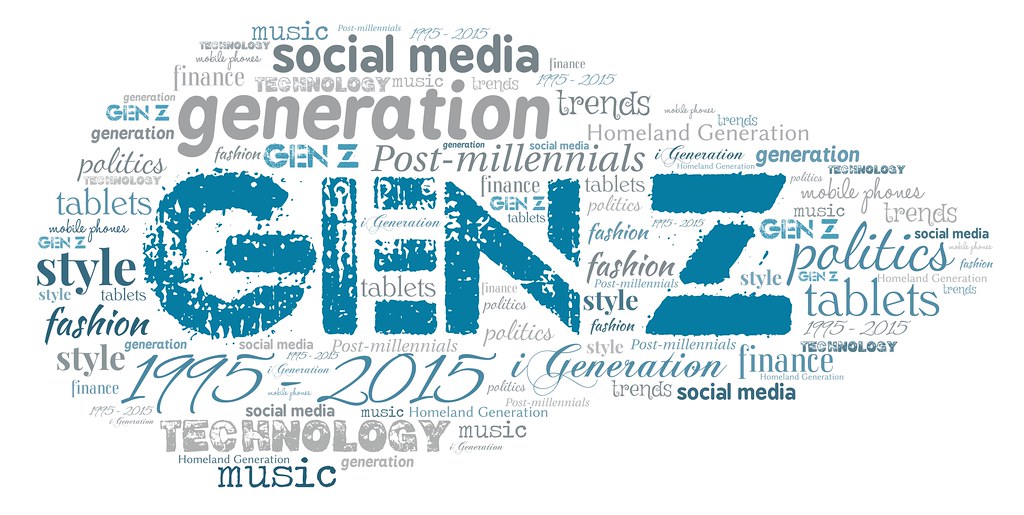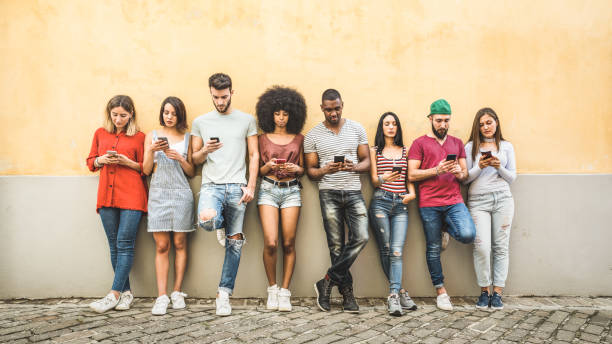“I think the thing that gets me most upset is how society still seems to think we are all Millennials.” That is how my conversation with a Gen Zer started. It’s a Friday, and we are sitting in about the most Gen Z place I can think of, a locally owned coffee shop. I’m having tea. I don't drink coffee, but from what I can tell at this place, all of Gen Z does. Gen Z has been the topic of several think pieces and investigations recently. This sort of mercurial and unknown generation of learners and workers is at the exact age to be in college and emerging into the workforce.
Born between 1995(ish) and 2012(ish), this generation is the most diverse and undefined generation of the previous four or five. Over 50% of Gen Z identify as something other than white, the first generation to do so. They are among the most educated generation in history and are more likely to have at least one parent who is a college graduate. Many had smartphones and iPads before they entered their first day in kindergarten. Like other generations, Gen Z is misunderstood. We label them as lazy and unwilling to work. But that is not my experience with this generation. As a parent of a Gen Z learner, I saw a student who was beyond engaged and ready for success. But was that some sort of parental bias? I decided to sit down with a few Gen Z learners to find out.
I must admit there is nothing scientific about this blog post. I didn’t really have an agenda or a script. I just wanted to have a chat with some Gen Zers and listen to what was on their minds. I spoke with four Gen Zers, one at my gym, another at a pub I like to hang out at, a wait staff for a local restaurant, and a college student I know. I started the conversation with the same question:
“So, tell me something about Gen Z that you would like me to know.”
And from there, we were off. Each conversation lasted maybe 20 minutes. Long enough to get the idea but not too long that the talk started to loop back on itself. With each Gen Z person, I wanted to know what they were about, what they thought about, and how they saw the world.
"I don't think you can even begin to discuss our experiences as Gen Zers without first discussing the (Covid-19) pandemic." One of the interviewees started with, "I really think it’s a matter of life before and after. And our generation was most affected. Think about it no other generation, at least in the last 100 years or so, had so many normal life experiences altered. I didn’t have a graduation or a prom. When I got to college, I spent the first year online. It was so weird. I mean, we are not scared of technology, but when you’re wearing a cap and gown and on Zoom, that must do something to you."
And that was a theme for all four discussions, things seemed fine, and then the pandemic hit. And that changed everything. And for all four of these people, not for the better. Another interviewee said, "look, I know it was not anyone's fault, but I felt really let down. All these things we were looking forward to, for me, prom was not a prom; it was a dinner where we sat outside and ate. We couldn’t dance and had to wear masks if we left the table. We tried to take a vacation and had to show negative covid tests to get on the plane. And, again, I get it, but I was often like, does anyone care about us and how we feel right now? Considering they’ve all forgotten it and moved on. I think the answer is NO!"
Another student added to that sense of lack of awareness for how Gen Z was processing; "When I got to college, I can’t say it was worth the money. After all, I was just online for classes, and the faculty were clearly not trying very hard. Either because they didn’t know how to teach online, or they didn't care the classes were so easy, or you never really had to show up. Can’t tell you how many times I just shut my camera off and did something else.” And that was just part of it when I talked to these students. This idea of feeling not only abandoned, but they really didn’t trust authority, and the very people they expected to care for them just mailed it in. That they were not really trying very hard. The person added, "Maybe my professors were also struggling to do this too. I imagine they are. But tell us and let us know they were not very good at the online stuff. But don’t act like this (online class as opposed to in-person class) is the same thing because it’s not."

All of the interviewees mentioned the lack of quality in their college experiences, and two took it a step further. "You know now I don’t care about going to class as much. I realized sitting through lectures, be it online or in person, really serves no purpose. After all, I can get the class notes." I asked what does engage them to attend. "Well, in some classes you have to, so there's that, but in others, if the professor is more engaging and gets us into conversations and discussions, then I feel like there is something to think about."
Another participant said, "you know, we learned during the pandemic that we can do it ourselves. We had to learn so much without any real help, and we did it. So what do I need the professor for? After all, I can Google the answer faster than he can teach it." Technology was clearly something each interviewee mentioned during their time with me. They all admitted they use outside help for just about anything they need to do, from homework to fixing something. Communication apps like Tik Tok and video apps like YouTube are their first option to learn something. "I just find a short video on a topic or idea more engaging than a lecture."
The participants admitted that technology and its ease of use make them impatient and anxious. There was a real sense that they are sprinting ahead, and we (meaning our generations) can’t keep up. So, they feel alone in many ways. Their social media presence helps, but all four of these interviewees felt most people really don’t get them, so they look down on them as lazy and entitled, "and I hate that about how we are portrayed it's like we never grow up, still seen as little kids who can't figure it out. And really, it's because we’ve had people do everything for us for so long it's hard to learn how to navigate the world if we are always being protected from it or only seeing it in our newsfeed."
But that is where these members of Gen Z get their information. “I don’t watch the news or anything. I learn about most news from Twitter or Tik Tok. I know I should branch out a bit, but I don’t trust I am getting the truth. I’d rather someone my age tells me what's up." All four mentioned that they were concerned they were getting inaccurate information, but that did not seem to stop them. When I asked them about politics, all four got uncomfortable. "I hate talking politics. It's like, Trump or Biden, and if you are not totally into it somehow, you’re the worst. Most of my friends vote and stuff, but that’s about it. We don’t care much after that."
When asked about what they expect from their careers, there was a consensus that they wanted quality out of their jobs; "I just don't want to do some job where I don't feel like I'm making a difference," one person said. Another admitted fully, "look, I know I'm not gonna make as much as my parents, so I might as well get rich off of experiences.” These Gen Zers all felt they needed to believe in the company or job to feel like they could work there, and they all said they would choose flexibility and balance over making more money. As one participant said, “I only get to live once. And if I learned anything from the pandemic, that could end really fast. I was on cruise control, and all of a sudden I'm trapped in my house with my parents and sisters, and I don't want to feel like that again. I hate feeling trapped."
And maybe that’s the theme of the discussions. Trapped with no options is not a way to live your life. The pandemic defined Gen Z. They did not ask for it and were the most impacted by it socially and developmentally. While they certainly understand how terrible the illness and deaths were for them. They felt trapped and isolated, and it profoundly affected them. So be it a job with little room for growth, a class where they sit and listen to a lecture, or the denial to access the milestones of life, these Gen Zers won't accept feeling trapped any longer. And this is where those of us in higher education can take a hint. In many ways, we were too fast to revert to pre-pandemic modalities when it's clear these need to change. This generation of learners and workers wants choices, want to matter, and wants flexibility. If we can do that, inside and outside the classroom, we will do better for these students. If we fail to do so, then they will find their own path.

Michael Preston, Ed.D. has served as Executive Director of the Florida Consortium of Metropolitan Research Universities since July 2015 where he works with Florida International University, the University of Central Florida and the University of South Florida.



